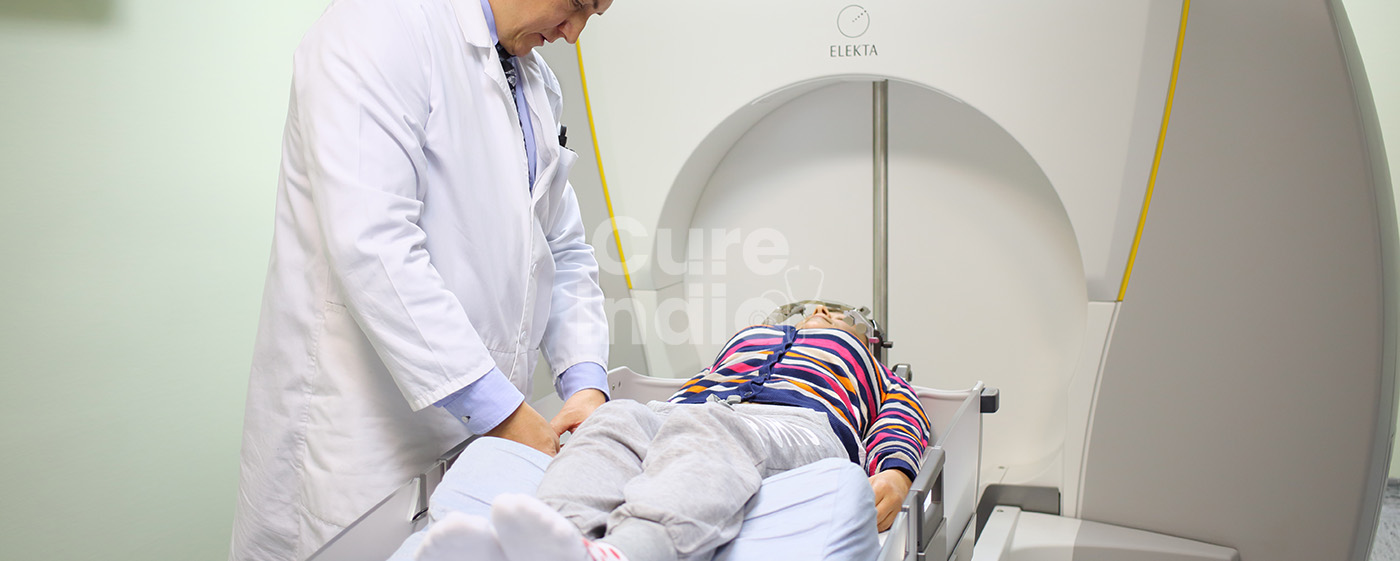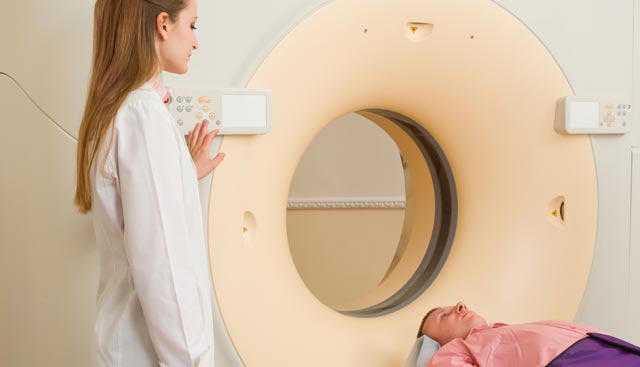

Image-guided radiation therapy, or simply IGRT is one of the many types of radiotherapies that are used to treat cancer cells present in the body. The IGRT is a conformational therapy which specifically targets the cancer cells, thereby preventing exposure and damage to the healthy tissues present in the body.
IGRT uses special machines called linear accelerators which deliver the radiation via the equipment used for imaging so that the doctors are able to detect and confirm the exact location, extent, size and shape of the tumor in the body both before and during treatments.

IGRT can be used to treat all types of cancer, however, it is more suited and effective for cancers that are present in or surround sensitive structures and organs. IGRT is also suitable for tumors which can spread and are not confined to one spot treatment or between treatments, such as lung tumors, which can be affected by breathing.
IGRT can treat:
IGRT has a lot of advantages that it can offer to the cancer patients in place of the conventional radiotherapy treatments. The advantages of IGRT are:
Before your IGRT treatment session, every time your radiation therapist will place you on the treatment table. Once your body is properly positioned, the doctor will take several scans of your body. Then the therapist will take several images and move your body again when your treatment starts so that the radiation is delivered to the exact location of cancer.
IGRT sessions are typically a little longer than any of the other radiation treatments as some time is also taken to collect and view the scans.
The radiation therapist may use several imaging technologies like PET, MRI, and CT to mark the precise location of the cancer present in the body, both before and during IGRT.
In some IGRT procedures, the radiation therapists mark small dots which are known as fiducial markers and are made of gold, plastic, or another material. These fiducial markers are placed around the tumor so that the location of the cancer is determined in the most precise way before the treatment. The radiation may also mark your skin so that the equipment is aligned perfectly before delivering the radiation.
Once the IGRT begins, the therapist continuously keeps monitoring and adapting the imaging technologies by seeing the changes that occur in your tumor, like shrinkage, growth, or any other changes in shape or location.
IGRT treatment requires several sessions in order to treat cancer effectively. Your radiation therapist may conduct IGRT on you for five days a week for several weeks. But the number of IGRT treatments you may undergo will depend on several factors such as the type of cancer you have and the size and location of the tumor.

India is one of the very few nations to now have one of the best cancer treatment options available worldwide. IGRT treatment in India is not only a good option, keeping in mind the excellent expertise of the doctors and medical facilities but it far more cost-effective than other countries like US, UK, Australia using the same treatment.
